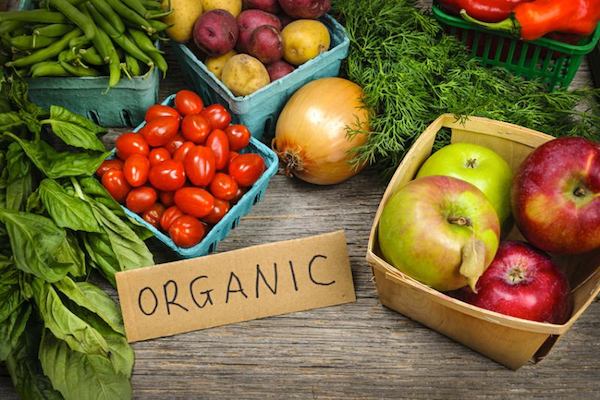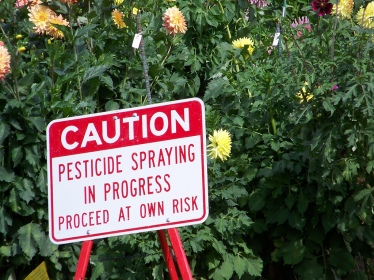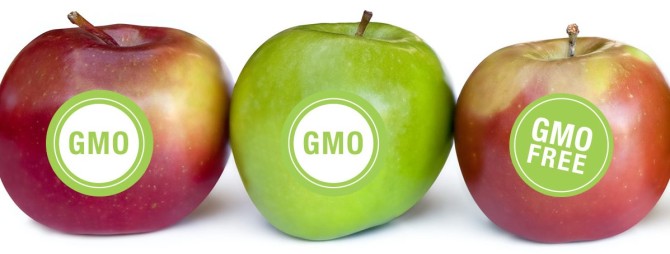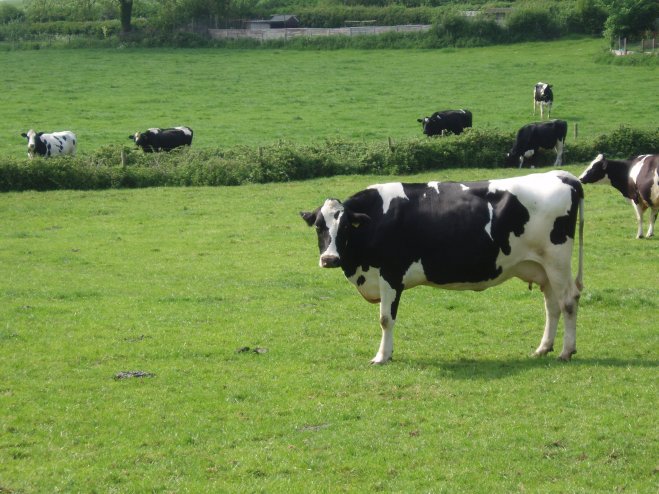This blog post is a bit different to what I would normally post and was borne entirely from my desire to learn more about where my food comes from and make better ethical decisions about the type of food I eat.
I was almost hesitant to post about this topic because people on both sides of the debate are very vocal about their views which really opens me up to a lot of potential hate if I say something critical about either side. This polarisation also made it very difficult while looking into this to find non-biased, peer reviewed information that didn’t overly rely on anecdotal evidence or taking small significant results too far. That being said, I hope that I’ve done justice to both sides and that what I’ve learned is helpful for anyone reading this who felt the same as me but was maybe overwhelmed by the large amounts of conflicting information out there.

So let’s start by saying what organic food is so we’re all on the same page. Organic food is, by definition, food grown without the use of synthetic pesticides and fertiliser, antibiotics or hormones. Furthermore, the food can not be genetically engineered or treated with artificial ingredients or additives. That’s as basic as it gets, for food to be branded organic it must satisfy these criteria.
Non-organic food then is everything else. So long as it satisfies national agricultural laws and standards any kind of farming methods and additives are allowed.
Organic farming history
It might not be surprising to hear that before 1920 practically all agriculture was organic. I mean, we didn’t even have chemical pesticides and fertilisers let alone the ability to use them. As such, the organic food movement isn’t so much a revolution as it is a renaissance.
During the 1920’s we started to move more towards industrialised agriculture which simply means we stopped growing food on small scale farms and started using large tracts of land better suited for mass production of crops and animal products. We can pretty much say the organic movement started here as a lot of farmers rebelled against industrialised agriculture and wanted to preserve the old ways, as did many people. By the 1940’s the organic movement was actually quite considerable.
But it was really in 1939 when Paul Müller developed the first of a new kind of insecticide, DDT, that the use of chemicals started being heavily promoted. Their efficiency could not be denied by even the staunchest of organic farmers who simply couldn’t keep up with those willing to adopt the new technology. This started an age of agriculture where organic methods were outright dismissed in favour of rapidly emerging chemical pesticides and fertilisers.
Incidentally, DDT was later shown to cause cancer as well as threatening the health of local wildlife and was outright banned in the US in 1972 and globally by 2004.
The DDT issue and the ‘return to nature’ attitude of the 1960’s and 70’s saw a resurgence in public desire for conservation and environmental awareness. This prompted the opening of various health food shops throughout the 1970’s and 80’s driven by environmentally friendly, organically grown food. By the 90’s organic foods started making their way into the supermarket aisles and today make up whole stores and departments.
Modern regulation
I’ve probably already given the impression that organic foods are better than non-organic foods just based on this DDT story alone. The truth is that since then we’ve really learned our lesson. As with most new technologies, they can tend to run away from us before regulation catches up. Thankfully, once regulation does catch up, it really goes to work.
New pesticides and fertilisers are subject to comprehensive testing to determine their effect on human health, the environment and local ecosystems. That means that if you’re eating non-organic food grown in the US or Western Europe (where the regulations are the most strict) there should be a minimal health or environmental impact of pesticide or fertiliser use.
The problem with pesticides
The biggest problem we really have, especially with pesticides, is public opinion of them. This is because, generally speaking, people don’t understand them. It’s easy to think of them as toxic and evil but although they are indeed toxic, they exist to kill pests after all, when used sensibly they are very safe and, above all, necessary. The large-scale, high-yield agriculture that we depend on for our food is itself completely dependent on pesticide use.
As much as we wish it could be otherwise, pests will always be a problem. Even with the best pesticide planning and management, farmers can still expect to lose 5-10% of their crop every year to pests. If it’s a particularly bad year they could lose as much as 20% – that’s one fifth of their earnings lost right there, before the crop even sees the marketplace. Farmers don’t want to have to spray pesticides over everything, pesticides cost money. They just happen to cost less money than losing even more of their crop.
Thankfully, regulations are in place to make sure these pesticides don’t negatively affect us. Many pesticides, for example, degrade rapidly once used so by the time the food reaches us the pesticide is no longer present. There are also regulations that tell farmers how close to harvest time they are allowed to spray pesticides. This ensures that there won’t be any fresh pesticide on the food the morning it’s shipped out for example. That said, there’s no negative effect to washing fresh produce before you eat it so I would always recommend giving it a wash anyway.
Pesticides in organic farming
Now, while we’re on the subject of pesticides, there’s one thing I want to make clear about organic farming. Organic does not mean pesticide-free or chemical-free. Organic farming uses pesticides. Pesticides will always be necessary because, as I said earlier, pests will always be a problem.
Despite this, many people hold this false belief about organic farming. But if we look back to the first paragraph at our definition of organic food, we can see that in order for a food to be called organic it must be grown without the use of synthetic pesticides. This means that pesticides are allowed to be used if the ingredients come from natural sources. Organic farming doesn’t refer to the use of pesticides but the origin of the pesticides. You can find the US list of approved pesticides for use in organic farming here.
It’s understandable now that you might slip into what is called the ‘natural is good’ fallacy – the belief that something natural is inherently better or healthier. For some reason, natural has become synonymous with healthy when that’s far from true. Bears are natural but running into one would not be good for your health. Similarly, botulism toxin is natural but it’s the most toxic substance known to man. So are pesticides made from natural sources ‘better’?
No, they’re not. As an example, one such organic pesticide called Rotenone, occurring naturally in the seeds and stems of several plants, was once thought to be safe because it’s organic. As it turns out, Rotenone has been found to cause Parkinson’s Disease-like symptoms in rats and may therefore be dangerous for humans. It was actually discontinued for farm use in the US in 2005 (although continues to be used in fish farming to remove unwanted fish).
In another study, an organic pesticide was put up against a synthetic pesticide to compare their ability to control a pest, the soybean aphid. Not only was the synthetic pesticide more effective, the organic pesticide actually caused the aphid’s predators to die too thereby indirectly causing a rise in aphid populations.
Now it sounds like I’m being overly critical of organic farming but what I’m really trying to say is that the ‘natural is good’ fallacy is important to recognise – it wasn’t recognised early enough by regulatory bodies which led to pesticides like rotenone. But as I said in regards to synthetic pesticides, regulation is quick to catch up and now organic pesticides are tested just as rigorously as synthetic ones.
Obviously not all organic pesticides share the problems of rotenone and, equally, not all synthetic pesticides share the problems of DDT. Pesticides will always be toxic, they are literally poisons designed to kill living things. For this reason we should never stop pushing for safer pesticides and we should never stop demanding research into the safety of current ones. What we shouldn’t be doing is promoting the idea that one type of pesticide is inherently better than the other and creating conflict where there isn’t one. Because when regulation starts yielding to public pressure the only victims are us.
GMOs
Aside from worries about pesticide contamination, one of the other big reasons people choose organic food is because of the belief that it’s authentic, as nature intended. This is in stark opposition to non-organic genetically engineered crops or as they’re better known, genetically modified organisms (GMOs).
GMOs get a lot of bad press, mostly from people who don’t understand them. The concern is understandable though, the phrase ‘genetic modification’ has been so overused in science fiction and horror genres that it immediately conjures up images of monsters and post-apocalyptic wastelands. The reality of genetic modification though is nothing like that, it’s actually quite boring.
What genetic modification means in crop farming is simply to modify an existing crop to give it traits that it couldn’t have naturally. So let’s imagine that you had the power to change any crop for the betterment of mankind, what would you do first?
How about enriching crops with new vitamins? It’s been done. Golden rice as it’s known is a genetically modified type of rice enriched with vitamin A. It was produced specifically to grow in areas where vitamin A deficiency was causing widespread childhood malnutrition – an issue that was causing the deaths of an estimated 670,000 children per year. In 2015 Golden rice won the Patent for Humanity award.
Then how about producing medicines? It sounds outlandish, but it’s also been done. Tobacco plants have been created that produce an antibody used to prevent HIV infection.
What about for us as food consumers? Well, we’ve produced a potato that can’t be bruised, an apple that doesn’t go brown, soybeans that produce healthier oil, the list goes on.
Concerns are raised every time we create a new genetically modified crop and every time studies are done to determine whether they cause any ill effects. In the vast majority of cases they are otherwise no different to the unmodified crop but if any ill effects are found that crop is not allowed to be used.
Perhaps most surprising is that organic farmers actively oppose genetically modified crops even when their goals are practically the same. One of the best examples of this is the use of the organic pesticide Bacillus thuringiensis (Bt) toxin. Organic farmers spread this pesticide over their crops every single year but the thing is, we’ve actually created genetically modified crops that express this toxin themselves. There’s no need for us to spread it over our crops any more because we’ve made crops that have it by default. Thanks to this particular GMO we used over 100,000 tons less pesticide, an almost 20% reduction in pesticide use, between the years 1996 and 2005.
Incidentally, this fits in well with one of the goals of organic farming which is the reduction of pesticide use. But because they actively oppose GMOs they still have to spread Bt toxin over their fields. This means that by opposing genetic modification they actually use more pesticide than is necessary.
But, of course, you have to look at it from the organic farmers perspective. Using no GMOs has higher ethical importance than using less pesticide. At some point you have to draw the line.
What organic food is not
Knowing where to draw the line is vitally important for something like the organic food movement because by growing organic or choosing organic you are making an ethical choice based on how you think farming should be done. As I said at the beginning organic farming is a back to basics approach, a pre-1920’s approach to farming. It’s a rejection of industrialised agriculture, a rejection of the mass production of crops and animals, a rejection of synthetic methods of food production like chemical pesticides and fertilisers and genetically modified organisms. If this is a philosophy you agree with then you support organic.
The problem is that there are a lot of other things that have become associated with organic food that are just not true so let me tell you what organic food is not.
Organic food is not healthier or safer
There was an excellent study done in 2012 that examined all the studies done between 1996 and 2009 that compared organic and non-organic food for nutritional content and contaminants. In total there were 223 studies; 153 looked at fruits, vegetables and grains and 71 looked at meat, poultry and eggs. Not all of the studies were great, some didn’t even report sample sizes which is always a bit of a red flag, but in the interests of fairness and to remove the possibility of the researchers cherry picking studies that supported their beliefs all studies were included.
Their results showed that there were:
- no significant differences in the vitamin content of any plant or animal products
- no significant differences in the amount of food surpassing maximum allowed safety levels for pesticide contamination
- no significant difference in the amount of bacterial contamination
- no significant differences in the amount of fungal toxins or heavy metal contamination
- no significant difference in the amount of people developing allergy-like diseases (such as eczema, asthma or wheezing)
What this is saying is that, really, overall, there is no significant difference in nutritional quality between organic and non-organic food. If you’re buying organic food because you believe that it is better for you, you are wasting your money.
Organic food does not taste better
This is where we’re on shakier ground research-wise because taste is very subjective. What tastes good to you may not necessarily taste good to me so we need to keep that in mind for this discussion. Also, if you’ve ever been in the supermarket produce aisle and tasted the organic and non-organic versions of the same thing you would probably say that the organic version tastes better. And you’re not wrong. This sounds like I’m contradicting myself but let me explain.
What we can probably agree on, if you’ve ever had the chance to grow something like strawberries or tomatoes at home, is that homegrown food tastes so much better than food bought at the supermarket. And the reason for this is that supermarket produce is grown to stay fresh for longer and is often treated with preservatives and other additives to achieve this effect. Most of the strawberries in the world are grown in China and the US (specifically, California) so if you live far away from these places your supermarket strawberries are probably travelling a long way to get there and they have to stay fresh for that whole time. Remember that a supermarket exists to make money and they do this by buying their fresh produce from the cheapest farm that their standards allow so they can offer you that fresh produce at a low price. This doesn’t impact the nutritional value of the food, but definitely impacts the taste.
This is where our organic produce comes in because organic farming doesn’t allow preservatives or any other artificial ingredients. What this means is that the organic produce was probably picked or harvested locally and more recently than the non-organic produce. Freshness is always a good thing for taste and is the reason why it tastes so much better than the non-organic supermarket alternative.
But, and this is important, the produce doesn’t taste better because it’s organic, it tastes better because it’s fresher and not treated with preservatives. You can find produce of equal, or better, quality if you have a local farmers market or smaller supermarket that sells locally grown food. Non-organic food from a local farm will taste just as good, or better, than organic food found in the supermarket.
Organic food is not a label of quality. While it might be true that organic food tastes better than supermarket produce, you’re literally comparing it to the lowest quality alternative. More important than the organic label is knowing where the food comes from and having a local farmers market can offer that same great taste without the organic price tag.
Organic food as an industry
The organic food industry has changed a lot since it’s inception and although we would still like to believe in the image of the nice old farmer in his worn overalls, working for himself on his small plot of land, watering each individual plant, heading off to the barn to muck out the cows and speak to each of them personally before letting them out to graze on his lush grassy field, the truth is that organic farming is close to a $50 billion industry and big money attracts big corporations.
The sad fact is that it’s quite hard for the small organic farmer to compete with giants such as General Mills, Tyson and Purdue which is why a lot of organic produce now comes from farms owned by large corporations. You can’t blame the small farmers for selling out, if you don’t join one of these corporations you’re their competitor and small farmers just don’t have the resources behind them to compete.
I’m sure most of these farmers went into the organic market with strong ethical principles about how they think food should be grown. The problem is that you need to make money to keep the farm alive to maintain those principles.
Not all organic food is created equally
With the entrance of large corporations into the organic market we’ve seen a gradual classification system emerge. At one end of the spectrum we have ‘good’ organic products that adhere strongly to organic principles and at the other end of the spectrum we have ‘bad’ organic products that adhere as loosely as they can to organic principles while still being able to maintain an organic classification.
I’m just going to use the example of organic milk and dairy farming for this section because attempting to talk about every aspect of organic farming would take way too long on an already long blog post.
So, a good organic dairy farm would probably match the idea you have in your head of what an organic farm would look like. Cows would be outside, grazing on organic pastures with the sun on their backs and a farmer who knows them all by name. It’s easy to be cynical about this romanticised idea but there are small family farms that run just like this and this is where we get our ‘good’ organic milk.
At the other end we have organic factory farms. This sounds like a contradiction in terms because factory farming and organic farming should be completely disconnected from one another. Sadly, cows on organic factory farms can spend as much of their time in crowded sheds as on conventional factory farms. The reason for this is in the ambiguity of the rules.
The U.S. Department of Agriculture (USDA) rules state that an organic cow should have year round access to the outdoors and receive at least 30% of it’s nutrition from organic pasture (grass). The issue with this is that having access to the outdoors is not the same as being outdoors. There is no rule that states how long the cow should be outdoors for so in reality as long as it steps foot outdoors now and then, it’s completely within the rules. And as far as receiving 30% of it’s nutrition from organic pasture goes, that still means the cow can receive the majority of it’s nutrition from other sources which would mostly be grain. Grass is far superior for the cows diet and also produces higher quality milk. Grain, on the other hand, is great for fattening cows up and grain fed cows happen to produce more milk than grass fed cows. It’s obvious then that grain is better for profits and grass is better for the cow.
It may not be surprising to hear, but organic milk produced by the larger corporations, the organic milk you’ll most likely find in your supermarket, has been implicated as coming from factory farms. Depending on your view of organic, you might be paying for something that’s not ‘really’ organic.
So how do you make sure that you’re getting what you paid for? Do some research, check out dairy farms in your area and find one that produces milk to your ethical standards. If there isn’t one or your ethical standards are not that high, just buy non-organic milk – in many cases there really isn’t a lot of difference.
Antibiotics in the livestock industry
There’s one last topic that I haven’t touched on yet that I’d just like to give a few words to here at the end.
One of the biggest issues I have with the livestock industry is the overuse of antibiotics in animal feed. I go into more detail about this in my post about antibiotics but by continuing this practice we are directly responsible for the development of antibiotic resistant bacteria. Antibiotic resistance is a global problem and one that may be a defining issue of the 21st Century.
Some 80% of all antibiotics used in the US are used in the livestock industry to prevent diseases of animals that later become our food. It’s been just recently reported that some types of E. coli and K. pneumoniae infection, the latter being the cause of pneumonia, have even become resistant to our last resort antibiotic. The reason for this is that, for some reason, our last resort antibiotic is being used in livestock farming giving bacteria all the time they need to develop resistance and become a problem for us. This practice is not sustainable and we need to do something about it.
Organic farming completely prohibits the use of antibiotics. For this reason alone it could be worth choosing organic meat. Of course, if this is something you’re concerned about there are non-organic farms that don’t use antibiotics too and I’m sure a quick bit of research would show you where they are and how to buy from them.
Last words
In summary, what I found out is that there is as much good and bad non-organic food as there is good and bad organic food. The organic branding doesn’t intrinsically mean it’s a healthier choice, tastier choice or a safer choice. In fact, more important than the organic branding is knowing where the food comes from.
The belief that human involvement and genetic modification is inherently bad is no more true than the belief that anything natural is inherently good.
What it really comes down to is whether, ethically, you agree with the organic farming ideas and principles and then if you have the money to spend, by all means buy organic food. However, organic food is considerably more expensive than non-organic food despite there being no proven health or nutritional benefits. So you shouldn’t feel pressured into buying it for the sake of your health or the health of your children when that money could be better spent elsewhere. Buying organic food remains, just like it did in the 1940’s, a personal choice, not an investment into your future well-being.



